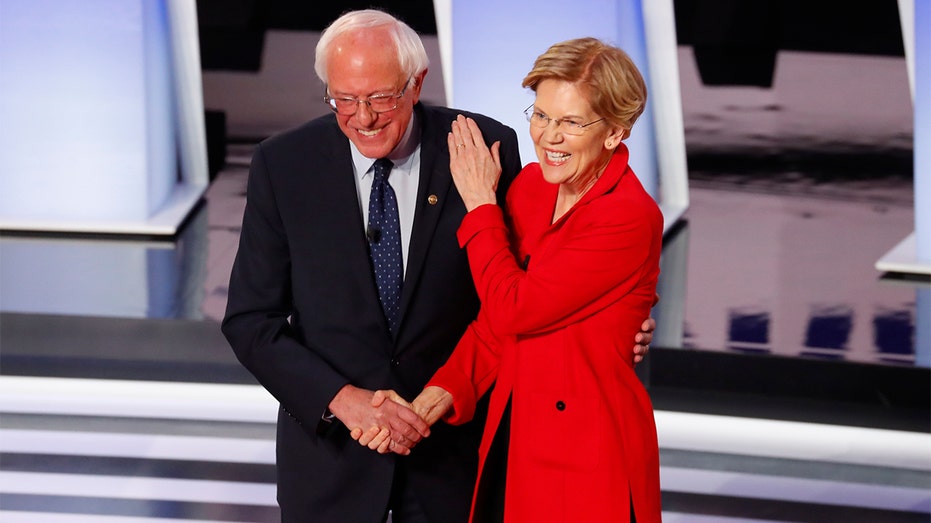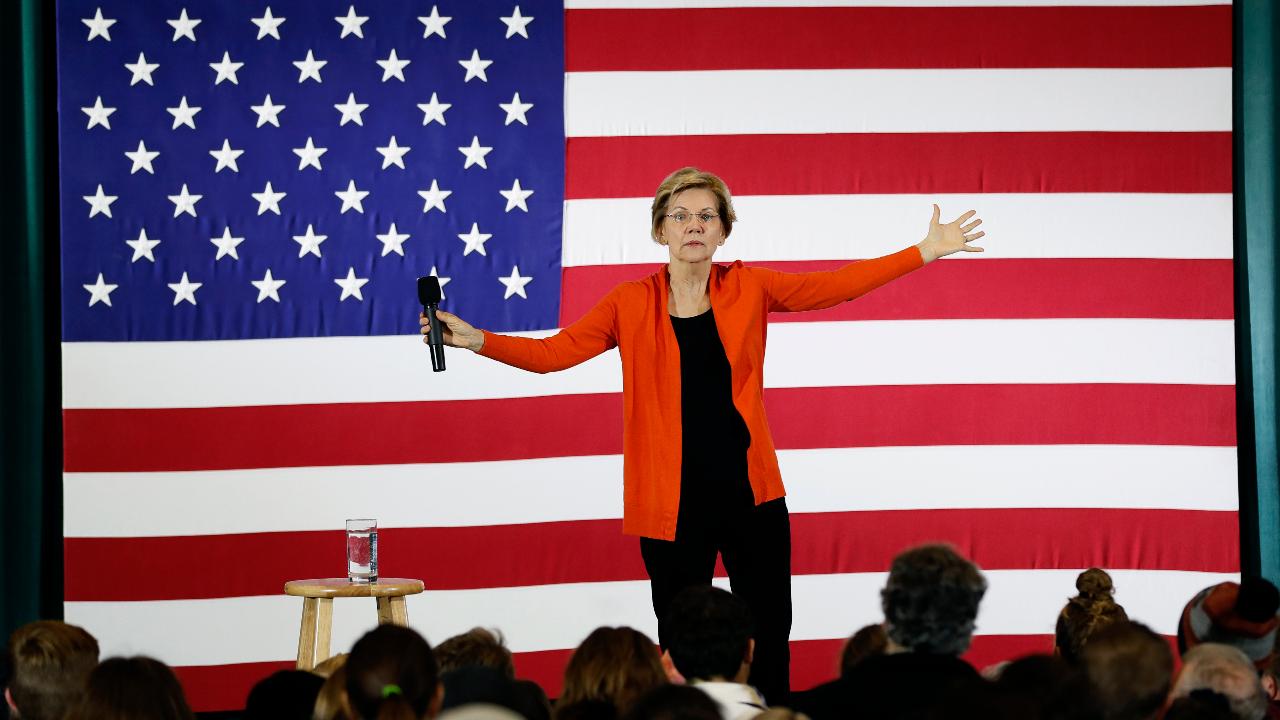2020 Democrats' anti-Wall Street push has 'raised concerns': Citi analysis
Voters believe the industry was not sufficiently penalized for the financial crisis, analyst writes.
The road to the White House in 2020 could result in a war against Wall Street and the wealthy, as Democratic presidential candidates — motivated by voter polls — target the financial sector, according to a Citi analyst note to clients.
A growing number of candidates are turning a "jaundiced eye" toward Wall Street, Citi warned, with a number seeking greater accountability of big corporations and Wall Street accountable — in large part because they believe the industry and its executives were not sufficiently penalized for the financial crisis more than a decade ago.
GET FOX BUSINESS ON THE GO BY CLICKING HERE
For some candidates, the banking sector and ultra-wealthy Americans are viewed as a source of revenue for re-distributional policies, like providing paid leave to further tax relief for low- and middle-income individuals. The note was likely alluding to Sens. Bernie Sanders and Elizabeth Warren; both candidates have vowed to impose new taxes on both the wealthy and corporations in order to finance a number of progressive plans, like eliminating student loan debt, Medicare-for-all and universal child care.

Sen. Bernie Sanders, I-Vt., and Sen. Elizabeth Warren, D-Mass., greet each other before the first of two Democratic presidential primary debates hosted by CNN Tuesday, July 30, 2019, in the Fox Theatre in Detroit. (AP Photo/Paul Sancya)
"The focus upon Wall Street and wealthy individuals during the presidential campaign season has raised concerns for many within the financial services sector and for persons living in high-income yet high-cost-of-living segments of the nation," Citi economist Dana Peterson wrote.
MEDICARE-FOR-ALL UNPOPULAR WITH VOTERS IN THESE KEY STATES
Voters are beginning to support these types of policies, with more of the general electorate believing that corporations and the rich do not pay their fair share of taxes. Interestingly, the more money that an individual has, the more (Republican) or less (Democrat) that person feels the tax system is fair, Peterson noted.
Still, investors shouldn't worry yet: Because some of these policies are unlikely to become law, unless the Democrats secure control over the White House and both chambers of Congress, an unlikely occurrence, Citi wrote. Even then, moderate Democrats might hesitate to support a progressive agenda, Citi said, assigning it a low probability of passage.
"Moderate Democrats, along with most members of the GOP, probably would reject the creation of an additional tax on the donor class (i.e. ultra-wealthy individuals and families), in our view," Peterson wrote.
CLICK HERE TO READ MORE ON FOX BUSINESS




















